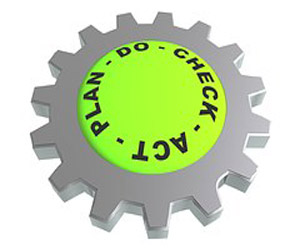


Cataloging A Legacy

Estate inventory is a crucial step in the probate process following the passing of an individual. It involves creating a comprehensive list of all assets, possessions, and liabilities left behind by the deceased. This inventory is used to evaluate the deceased person's financial situation, settle outstanding debts, and distribute assets to beneficiaries according to the terms of the will or state laws. In this article, we'll explore the significance of estate inventory and how it plays a vital role in the management of a decedent's affairs.
The Importance Of Estate Inventory
Assessing Financial Situation: Estate inventory provides an accurate assessment of the deceased person's financial situation, including the total value of assets, such as real estate, bank accounts, investments, personal property, and any outstanding debts or liabilities.
Legal And Financial Clarity: An estate inventory is essential for legal and financial clarity. It helps to ensure that the probate process proceeds smoothly and that the decedent's debts are paid from the estate's assets in an orderly and legally compliant manner.
Asset Distribution: The inventory serves as a foundation for distributing assets to beneficiaries as specified in the will or according to state laws if there is no will. It helps prevent disputes and ensures that assets are distributed in accordance with the decedent's wishes or legal requirements.
Key Elements Of Estate Inventory
Real Estate: Include all properties owned by the decedent, such as primary residences, vacation homes, rental properties, or land holdings. Provide detailed descriptions and valuation.
Financial Assets: This category covers bank accounts, investment accounts, stocks, bonds, retirement accounts, and any other financial assets. Include account numbers and balances.
Personal Property: Personal property encompasses items such as vehicles, jewelry, collectibles, furniture, and household items. Catalog each item with descriptions and estimated values.
Business Interests: If the decedent owned or had interests in a business, these should be documented and valuated as part of the estate inventory.
Debts And Liabilities: List all outstanding debts and liabilities, including mortgages, credit card balances, loans, and unpaid bills. Include the name of the creditor, the outstanding balance, and any relevant account information.
Regular Review And Updates
Estate inventory should be periodically reviewed and updated to reflect changes in the estate's assets and liabilities. It's essential to keep this document current, as new assets may be acquired, debts paid off, or values may change over time.
Challenges And Considerations
Creating an estate inventory can be a time-consuming and emotionally challenging process, particularly for family members who are mourning the loss of a loved one. Professional guidance from an estate attorney or executor is often sought to ensure that the inventory is accurate, comprehensive, and compliant with legal requirements.
Estate inventory is a pivotal step in the probate process that provides clarity and order to the management of a decedent's financial affairs. It ensures that assets are distributed in accordance with the decedent's wishes or state laws and facilitates the settlement of outstanding debts. By carefully cataloging all assets, possessions, and liabilities, estate inventory is a crucial tool in preserving a legacy and achieving a smooth transition of assets to beneficiaries.


Strategies For Financial Success
 3. Industry And Location: The industry in which one works and their geographic location can significantly impact earning potential. Certain industries and regions offer higher salaries due to supply and demand dynamics.
3. Industry And Location: The industry in which one works and their geographic location can significantly impact earning potential. Certain industries and regions offer higher salaries due to supply and demand dynamics.
4. Career Progression: Climbing the career ladder, taking on leadership roles, and expanding responsibilities can lead to salary increases and greater earning potential.
5. Negotiation Skills: The ability to negotiate salary and benefits during job offers or performance reviews can have a substantial impact on earning potential.
6. Networking And Relationships: Building a strong professional network and fostering valuable relationships can lead to career opportunities that boost earning potential.
Strategies For Maximizing Earning Potential
Invest In Education And Training: Continuous learning and skill development are key to enhancing earning potential. Consider pursuing additional degrees, certifications, or online courses to stay competitive in your field.
Seek Career Advancement: Actively pursue career advancement opportunities, whether it's within your current organization or by exploring new roles. Take on leadership positions or additional responsibilities to increase your market value.
Challenges And Solutions
 2. Lack Of Employment Benefits
2. Lack Of Employment Benefits
Gig workers typically do not enjoy the same benefits as traditional employees, such as health insurance, retirement plans, and paid time off. This lack of benefits can leave gig workers vulnerable in times of illness or retirement.
Solution: Some gig platforms are starting to offer benefits to their workers, and policymakers are discussing ways to extend certain benefits to gig workers through legislative measures. Gig workers can also explore private options for health insurance and retirement savings.
3. Job Security
Gig workers often lack job security, as their employment is contingent on demand and competition. They can be subject to abrupt changes in work volume, which may lead to income fluctuations.
Solution: To enhance job security, gig workers can consider multiple gig platforms and projects, thus reducing their reliance on a single income source. Policymakers could explore ways to provide more stability, such as imposing regulations that protect gig workers from abrupt deactivations and guaranteeing a certain level of compensation.
A New Paradigm In The World Of Employment
 Short-Term: Task-based work assignments are generally of short duration, often limited to the completion of a specific project or task.
Short-Term: Task-based work assignments are generally of short duration, often limited to the completion of a specific project or task.
Flexibility: Workers engaged in task-based work often have the flexibility to choose when and where they work, as long as they meet project deadlines.
Varied Assignments: Task-based workers may take on a wide variety of assignments in different industries and roles, making it a dynamic and diverse employment model.
Freelance Or Contractual: Task-based workers are often classified as freelancers or independent contractors, meaning they are responsible for their own taxes, benefits, and expenses.
Online Platforms: Many task-based jobs are facilitated through online platforms and marketplaces that connect workers with clients, making it easy for individuals to find and secure assignments.
Advantages Of Task-Based Work
Flexibility: Task-based work offers the flexibility to choose assignments that align with an individual's skills, interests, and availability.
 Online Businesses: The internet has opened up numerous opportunities for passive income. Starting a blog, an e-commerce store, or affiliate marketing can generate income through advertising, product sales, and affiliate commissions.
Online Businesses: The internet has opened up numerous opportunities for passive income. Starting a blog, an e-commerce store, or affiliate marketing can generate income through advertising, product sales, and affiliate commissions.
Peer-To-Peer Lending: Platforms like LendingClub and Prosper allow you to lend money to individuals or small businesses in exchange for interest payments. This can be a viable passive income source, especially if you spread your investments across multiple loans.
Create And Sell Digital Products: If you have skills in graphic design, writing, or coding, you can create digital products such as eBooks, courses, or software. Once created, these products can be sold online with minimal ongoing effort.
Stock Market Investments: Apart from dividend stocks, you can also explore other investment options like index funds and Exchange-Traded Funds (ETFs). These investments can provide both capital appreciation and dividends.
A Compassionate Guide To End-Of-Life Care
 Personal Preferences: Everyone has unique beliefs and values regarding healthcare, especially when it comes to end-of-life care. A living will allows individuals to express their specific preferences for medical treatments, including life-sustaining procedures, artificial nutrition, and organ donation.
Personal Preferences: Everyone has unique beliefs and values regarding healthcare, especially when it comes to end-of-life care. A living will allows individuals to express their specific preferences for medical treatments, including life-sustaining procedures, artificial nutrition, and organ donation.
Reducing Confusion And Conflict: Without a living will, family members and healthcare providers may face confusion and potential disputes over medical decisions. This document offers clarity and helps avoid disagreements by providing a clear roadmap for care.
Key Elements Of A Living Will
End-Of-Life Preferences: A living will typically outlines preferences for end-of-life care, including the use of life-sustaining procedures such as CPR, mechanical ventilation, and artificial nutrition. Individuals can specify which treatments they want and those they wish to decline.
Organ Donation: Some living wills also include directives on organ donation. Individuals can express their willingness to be organ donors, specifying which organs or tissues they are willing to donate.
Mental Health And Psychiatric Treatment: In addition to physical healthcare decisions, living wills can address mental health and psychiatric treatments, allowing individuals to express their preferences regarding psychiatric medications and treatments.
Regular Review And Updates
It's crucial to review and update your living will regularly. Changes in health status, life circumstances, or legal regulations may necessitate revisions to your document to ensure that it accurately reflects your current healthcare preferences.
A Blueprint For Financial Success
 To start building wealth effectively, millennials must first invest in their financial education. Understanding basic financial concepts, such as budgeting, saving, investing, and debt management, is essential. Financial literacy empowers millennials to make informed decisions and set clear financial goals.
To start building wealth effectively, millennials must first invest in their financial education. Understanding basic financial concepts, such as budgeting, saving, investing, and debt management, is essential. Financial literacy empowers millennials to make informed decisions and set clear financial goals.
Fortunately, there are numerous resources available, including online courses, personal finance blogs, and books, specifically designed to cater to millennials. Financial empowerment begins with knowledge.
2. The Power Of Saving And Investing
Saving is the first step on the path to wealth building. Millennials should aim to save a portion of their income consistently. The commonly recommended savings target is 20% of your income, but it's essential to adjust this figure to your specific circumstances.
Investing is where wealth-building takes off. Millennials should explore investment opportunities that align with their risk tolerance and financial goals. This might include stock market investments, real estate, or retirement accounts like IRAs or 401(k)s. Investing offers the potential for substantial returns over time, and the sooner you start, the more your money can grow through compounding.
Paving The Way To Financial Freedom
 3. Debt Reduction: High-interest debt can be a significant barrier to early retirement. Prioritize paying off debts, particularly high-interest ones like credit card debt and personal loans, which can consume a substantial portion of your income.
3. Debt Reduction: High-interest debt can be a significant barrier to early retirement. Prioritize paying off debts, particularly high-interest ones like credit card debt and personal loans, which can consume a substantial portion of your income.
4. Passive Income Streams: Creating passive income streams is a crucial strategy for early retirement. These income sources, such as dividends, rental income, or royalties, provide financial support without the need for active work. Building these streams often takes time, but they can be a substantial asset on your journey to financial independence.
5. Side Hustles: Many early retirees maintain side businesses or freelance work to supplement their income. These extra earnings can significantly accelerate your progress toward early retirement.
6. Geoarbitrage: Living in a location with a lower cost of living can make your savings and investments go further. Some early retirees choose to relocate to areas where their money has more purchasing power.
7. Healthcare Planning: Managing healthcare costs is a critical consideration in early retirement. Many early retirees access healthcare through affordable insurance plans or take advantage of government programs.